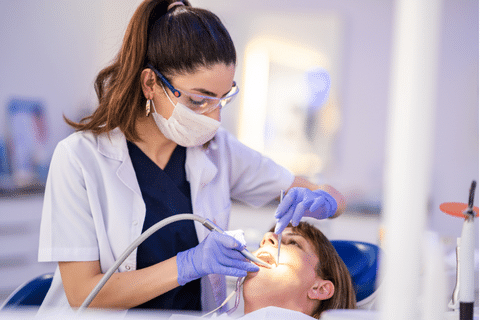
In our previous post on dental anxiety tips, we discussed the idea of sedation dentistry.
Sedation dentistry is a great way to help patients manage their dental anxiety, and awareness of the advantages of sedation dentistry is increasing.
Understanding the levels of sedation available is key to understanding the risks involved in using sedation dentistry on your next visit to the dentist.
Levels of Sedation
There are essentially 4 different levels of sedation available, and your dentist will be able to advise you on the most appropriate one for you.
Those levels are:
- Minimal sedation. This is usually administered by inhaling nitrous oxide (or, as it is more commonly known, “laughing gas”). With this level of sedation you are conscious, but more relaxed.
- Moderate sedation or “conscious sedation”. This is the next level of sedation and again, you are still conscious and awake during the entire procedure. With this slightly deeper level of sedation though, you may find you don’t remember some or all of the procedure, and you may also notice some slurring of your words for a short time after the procedure.
- Deep sedation. For this, you are semi-conscious. You will be on the edge of consciousness for the duration of the procedure.
- General anesthesia. This is the deepest level of sedation and here you are completely sedated and unconscious, just as you would be in any standard operation.
So, Is Sedation Dentistry Safe?
Generally speaking, sedation dentistry is perfectly safe.
As you might expect, there is always some degree of risk and the precise risks involved can vary depending on the level of sedation you elect to have.
For a deeper sedation, the risks are the same as any general anesthesia, and this article from Colgate has a great overview of some of the possible side effects. See More.
Potential Risks of Sedation Dentistry
Depending on the level of sedation you and your dentist decide is necessary, the level of risk involved can be higher or lower.
It’s important to remember that sedation or anesthesia is generally very safe when administered by a trained and experienced professional.
At Kherani Dental at Aspen, all of our dentists who practice sedation dentistry at any level have undergone rigorous training that exceeds the recommended requirements.
We undertake many sedation procedures here in our Calgary dental clinic on a regular basis and use high-end modern dental anesthesia equipment for the most thorough sedative administration and patient monitoring possible.
Sedation Dentistry While Pregnant
If you are pregnant and in need of a complex dental procedure like a root canal or filling, sedation dentistry is a perfectly safe option for both you and your baby.
In the early and latter stages of your pregnancy however, your dentist may recommend avoiding the deeper levels of sedation and instead opting for a lighter sedative.
This is because there is potential for some of the sedative to pass through the placenta, where it can affect the very early development of your child in the first trimester. In the latter stages of pregnancy there is also a risk that sedation can contribute towards preterm labor.
Pregnant patients looking to find out more about their sedation dentistry options should contact the team here at Kherani Dental at Aspen and arrange a time to talk to one of our experienced dentists.
Sedation Dentistry for Elderly
Elderly patients are also somewhat more at-risk under sedation, and again it’s likely that your dentist will advise lower levels of sedation in most circumstances.
Whatever sedation level you and your dentist decide is appropriate, your dentist will likely adjust the dosage of sedative administered in order to keep any risks as low as possible.
Sedation Dentistry with Pre-Existing Medical Conditions
No matter what your age, your dentist will want to thoroughly review your medical history with you prior to recommending you for sedation dentistry.
If you have certain pre-existing conditions then you may be more at risk during a sedation procedure, and your dentist will be able to recommend the most appropriate level of sedation for you and advise you on the exact risks involved for your procedure.
Obese patients and those with sleep apnea are particularly at risk, and for some patients you dentist may recommend a lower level of sedation to help manage your risk.
Find Out More About Sedation Dentistry
If you are considering sedation dentistry and would like to discuss your options further, our highly trained and experienced team are here to help answer all of your questions. Call the Kherani Dental at Aspen team today at (403) 263-0055 to make an appointment.
